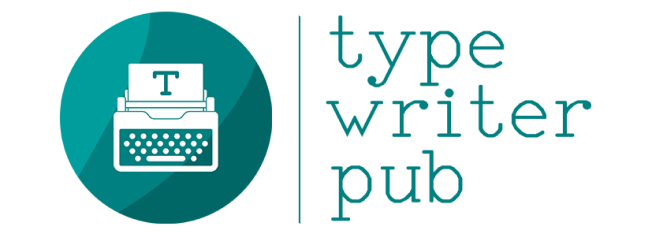[av_section min_height=” min_height_pc=’25’ min_height_px=’500px’ padding=’default’ shadow=’no-border-styling’ bottom_border=’no-border-styling’ bottom_border_diagonal_color=’#333333′ bottom_border_diagonal_direction=’scroll’ bottom_border_style=’scroll’ margin=” custom_margin=’0px’ scroll_down=” custom_arrow_bg=” color=’main_color’ background=’bg_color’ custom_bg=” background_gradient_color1=” background_gradient_color2=” background_gradient_direction=’vertical’ src=” attach=’scroll’ position=’top left’ repeat=’no-repeat’ video=” video_ratio=’16:9′ video_mobile_disabled=” overlay_enable=” overlay_opacity=’0.5′ overlay_color=” overlay_pattern=” overlay_custom_pattern=” av-desktop-hide=” av-medium-hide=” av-small-hide=” av-mini-hide=” av_element_hidden_in_editor=’0′ av_uid=’av-yht0c’]
[av_one_fifth first min_height=” vertical_alignment=” space=” custom_margin=” margin=’0px’ row_boxshadow=” row_boxshadow_color=” row_boxshadow_width=’10’ link=” linktarget=” link_hover=” title_attr=” alt_attr=” padding=’0px’ highlight=” highlight_size=” border=” border_color=” radius=’0px’ column_boxshadow=” column_boxshadow_color=” column_boxshadow_width=’10’ background=’bg_color’ background_color=” background_gradient_color1=” background_gradient_color2=” background_gradient_direction=’vertical’ src=” background_position=’top left’ background_repeat=’no-repeat’ animation=” mobile_breaking=” mobile_display=” av_uid=’av-q30jo’]
[/av_one_fifth][av_three_fifth min_height=” vertical_alignment=” space=” custom_margin=” margin=’0px’ row_boxshadow=” row_boxshadow_color=” row_boxshadow_width=’10’ link=” linktarget=” link_hover=” title_attr=” alt_attr=” padding=’0px’ highlight=” highlight_size=” border=” border_color=” radius=’0px’ column_boxshadow=” column_boxshadow_color=” column_boxshadow_width=’10’ background=’bg_color’ background_color=” background_gradient_color1=” background_gradient_color2=” background_gradient_direction=’vertical’ src=” background_position=’top left’ background_repeat=’no-repeat’ animation=” mobile_breaking=” mobile_display=” av_uid=’av-kxcwk’]
[av_heading heading=’Handy Writing Improvement Tips for 2020′ tag=’h2′ link_apply=” link=’manually,http://’ link_target=” style=’blockquote modern-quote modern-centered’ size=’50’ subheading_active=” subheading_size=’15’ margin=” margin_sync=’true’ padding=’10’ color=” custom_font=” av-medium-font-size-title=” av-small-font-size-title=” av-mini-font-size-title=” av-medium-font-size=” av-small-font-size=” av-mini-font-size=” av_uid=’av-k9glrken’ id=” custom_class=” admin_preview_bg=”][/av_heading]
[av_hr class=’default’ height=’50’ shadow=’no-shadow’ position=’center’ custom_border=’av-border-thin’ custom_width=’50px’ custom_border_color=” custom_margin_top=’30px’ custom_margin_bottom=’30px’ icon_select=’yes’ custom_icon_color=” icon=’ue808′ av-desktop-hide=” av-medium-hide=” av-small-hide=” av-mini-hide=” av_uid=’av-1cgd0′]
[av_textblock size=” font_color=’custom’ color=’#000000′ av-medium-font-size=” av-small-font-size=” av-mini-font-size=” av_uid=’av-k9glsfc1′ id=” custom_class=” admin_preview_bg=”]
If you are a writer and have already published your work on Wattpad, Amazon books, or even here at Typewriter Pub, you might think that you no longer need to improve your since you already achieved your goal of getting your story out there. This couldn’t be further from the truth as like most skills, writing requires constant practice. In fact, even seasoned authors have taken it upon themselves to continuously hone their craft and eventually create a writing system that best works for them.
If you would like to improve your writing this 2020 (and hopefully get another story published by us) then here are some handy tips on how you can become a better writer:
● Read More or Consume More Media

It’s no secret that reading and writing often goes hand-in-hand. The reason for this is because reading stimulates your imagination and generally gives your brain that much-needed boost whenever you feel stuck working on a certain scene. However, if you are one of those people who struggle with reading (hello dyslexic writers!) then other ways on how you can boost your creative juices include watching movies, listening to music, and even playing video games!
Additional tip: While it’s always a great idea to seek inspiration from the books and movies we love, remember to avoid taking scenes and dialogue word-for-word to avoid plagiarism.
● Analyze Works from Your Favorite Authors

Many people become writers because they were inspired by another author’s works and creations. As a result, many often try to emulate their idol’s writing style whether it involves world-building, creating engaging dialogue, and building up to an unexpected plot twist.
To elevate your own writing style, look back on some of your favorite author’s work and analyze how they manage to make you a fan in the first place. Was it the engaging characters? The intense fight scenes? Or the all-encompassing romance that swept you off your feet? Whatever the reason, make a list of what areas you would like to improve on and see how your favorite authors measure up.
● Create Your Story Outline

A large percentage of a great story involves creating a lot of planning. In fact, aside from actually writing (and editing) your work, creating your story’s structure is often seen as one of the most important tasks of becoming a novel.
Unfortunately, many people often think an outline is deemed unnecessary and would like to write off the cuff, while it may work for some, creating a logical framework of where your story is going can actually help you in the long run especially if you suffer from the dreaded writer’s block.
So unless you’re an improv comedian, take some time to create your story’s general outline before breaking it down into mini-chapter outlines. Trust us, it’s a lifesaver!
Additional tip: Unsure of how to start? Here’s an example on a writer’s outline by one of our writers:

The takeaway: Your outline should basically be your map on where you want your story to go. It can also be used as a reference guide on where you can add some details on your character. When working, you can add more details as you go along so long as it makes sense to you.
● Edit Tirelessly

Aside from planning your story, another task that can help you improve your skill is to edit everything from the dialogue to the pacing and other details. While the planning stage usually takes place at the beginning, the editing should almost always happen after you are done with the entire story. The reason for this is because you don’t want to get distracted with too many technicalities before you even get to the finishing line.
If you are not confident with your editing skills, consider asking a close friend or a beta reader to check your work for you!
● Research Constantly

Many people think research only happens during the planning stages of your novel but that isn’t always the case. In fact, a lot of writers who are in the “zone” have been known to keep Google open in their browser just in case they need to find that perfect word or metaphor.
Aside from picking the right phrase for the story, constant research also helps prevent possible plot holes from happening in your story while also making it more realistic to the readers (yes even if it’s a fantasy tale).
One example? Let’s say your protagonist is an American high school student but you, the writer, currently live in a Southeast Asian country. Sure enough, you may find that there are several cultural differences that you need to watch out for. While watching endless American high school movies may help, keep in mind that not all of them are portrayed “realistically” and that you might be better off watching actual high school kids talk about their lives on YouTube.
● Know that Your First Draft is NOT Your Last

Congratulations! You’ve finished your story and you’re feeling pretty good about yourself and you should! After all, not everyone is able to finish their story and you just proved yourself to be one tough cookie!
However (and this is a big however),
It isn’t over yet. In fact, this may just be the beginning of something new and by that we mean, that your story will most likely undergo a series of changes that has to be done before it can be published. We’re talking about editing grammar and structure, tying up loose ends, and making sure there aren’t possible plot holes.
If you have a beta reader or an editor who works on the more technical side of things, you might feel discouraged when you notice a lot of criticism from them. This can be discouraging for some, particularly those who just finished their first major work. But you need to keep in mind that your first draft will most likely be your roughest. When you receive constructive criticism, it means that your editor or beta reader are just doing their best to help you so you can become the best writer you can be.

Like many skills, writing requires constant practice for it to foster and grow. While it may seem overwhelming at first, one must remember that it can only get better from here on out so long as they have the drive and discipline to work their skills one day at a time. After all, Beyoncé wasn’t built in a day and neither should your writing.
For additional writing tips, check out some of our other articles here
Sources:
https://www.wordstream.com/blog/ws/2014/08/07/improve-writing-skills
[/av_textblock]
[/av_three_fifth][av_one_fifth min_height=” vertical_alignment=” space=” custom_margin=” margin=’0px’ row_boxshadow=” row_boxshadow_color=” row_boxshadow_width=’10’ link=” linktarget=” link_hover=” title_attr=” alt_attr=” padding=’0px’ highlight=” highlight_size=” border=” border_color=” radius=’0px’ column_boxshadow=” column_boxshadow_color=” column_boxshadow_width=’10’ background=’bg_color’ background_color=” background_gradient_color1=” background_gradient_color2=” background_gradient_direction=’vertical’ src=” background_position=’top left’ background_repeat=’no-repeat’ animation=” mobile_breaking=” mobile_display=” av_uid=’av-96hws’]
[/av_one_fifth][/av_section]
